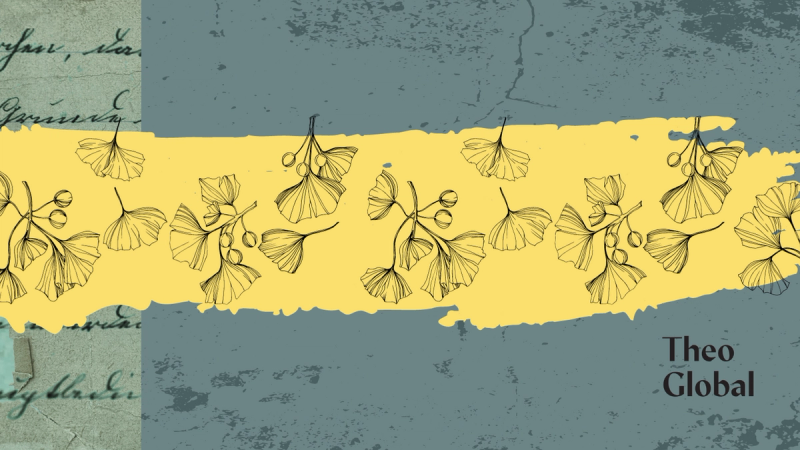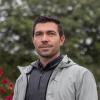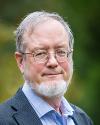In the following interview, I’m chatting with Adam Smith, chief operating officer and leader of international initiatives for Sola Media (the parent organization of Modern Reformation) and Dr. Michael Horton, J. Gresham Machen Professor of Systematic Theology and Apologetics at Westminster Seminary California, cohost of the White Horse Inn, and editor-in-chief of MR.
Our theme for this issue, “The Rule of Faith,” represents the shared Christian convictions of the universal church across time and place. That worldwide identity is why I’ve been so excited to talk to Mike and Adam about Theo Global, an initiative that reminds us that the church’s unity in the faith isn’t abstract. It’s as real as the relationships Adam and Mike have been forming with brothers and sisters around the globe. (This interview has been edited for length and clarity. To listen to an extended audio version exclusively for subscribers, visit www.modernreformation.org/theoglobal.)
In a nutshell, what is Theo Global?
AS: Theo Global is an initiative focused on doing theology with Bible and theology scholars from around the world, especially the Majority World outside the cultural West. We began in 2015 with our first conference in India, and since then, we’ve continued to hold annual conferences in India and Africa. Just this past month, we added our first in the Middle East and in North Africa. We also provide other resources and opportunities for global scholars to do theology together. We’re currently working on a book project with Zondervan Academic, and we have a website with a library of resources that scholars and professors from all over the world can access for personal learning and for curricula.
Adam, your background prepared you quite well for this role. Can you tell us a little about that?
AS: For an American kid from Iowa, I have a pretty international background. Immediately after college, I moved overseas to live in the Philippines for a short time and then for about six years worked with a large organization developing biblical and evangelistic training for churches, traveling a hundred-plus days a year all over the world.
Mike, how did you get roped into this?
MH: I’ve always received more than I gave when I visited the Global South. But now with Theo Global, I feel like I’m a part of a targeted, goal-oriented, and organized effort. They’ve had to endure from us a lot of the (frankly) garbage we’ve pumped out to the rest of the world—the prosperity gospel being the worst of it. These are people committed to the gospel, to the inerrancy and authority of Scripture, even if from different theological confessions. We have some people who don’t think of themselves as part of a confession, but they have missionary hearts, a high view of Scripture, and love studying theology.
Mike, you mention all these exotic locales. But many of us know the story that this whole organization started thirty-something years ago in your dorm room at Biola University in Southern California.
MH: That was already a kind of foreign place.
So what’s distinctive about what we at Sola Media focus on or how we approach things that leads us to see a distinctive opportunity for Theo Global?
AS: Back in 2014 and 2015, we started doing research, including numerous conversations with institutions and professors, particularly in India and in East Africa. We were trying to listen to what they and their churches needed to help them take the next steps toward faithfulness and fruitfulness. We kept hearing from these institutions that there was very little opportunity for their Bible and theology professors to actually do theology or discuss it. Now, they’re teaching it—but how much opportunity do they have to dialogue about it or to enjoy an academic space (in publications or conversations) that enables continued learning and refining after their graduate work? There was a hunger to engage in theological and biblical conversation, which is their first love. But a lot of the time they’re stuck in administration. As we talked and prayed through the question “Who are we to engage or to try to meet a need like this?” it struck us that facilitating theological conversations is what Mike and the White Horse Inn have been doing all these years. We just had to figure out how to take that ethos of unity in diversity, theological conversation and respectful dialogue, and doxology—and translate it all from a podcast and a magazine into a forum for scholarly conversation.
MH: This is what we’re laser focused on: Get the gospel right and get the gospel out. We know that if we can plant seeds in the Majority World, then they’ll grow. Although we’ve seen weeds grow like there’s no tomorrow, healthy wheat also grows. If we can get more good theology into the soil there, that’s going to help not only them but us, especially as the West seems to be in decline. We’re learning from them already; hopefully they’re also learning from us. But mostly what’s exciting is that we’re all learning from the conversation together.
AS: I can remember several years ago sitting in Mike’s backyard, asking ourselves the question, “Who would we say are the top theologians from the Majority World?” Not Western—not American, not Australian, not European. We both felt this heavy burden because we’ve met some folks that could be in that category. Folks who could be a gift to the global church if only we could have an opportunity to listen to them. Imagine if my pastor or your pastor could name three theologians from the Majority World. Not only name them but also reflect on the goodness and wisdom of the insights they bring, or maybe challenge some of our cultural assumptions, or sing beautifully of the gospel with descriptions and perspectives outside the way we typically think about and approach it.
MH: The difference now is that Adam and I can name them. In fact, we have quite a few names. These are people with whom we study and pray and eat—people I’ll know the rest of my life. And it’s not that they or we are saying, “Oh, great, the Westerners have come riding in on their white horses.” It’s nothing like that. The Lord has certainly given us in the West greater material wealth—and greater opportunities, therefore, to create initiative like this. But the only way it works is because the people who participate in it are creating it. We’re not arriving with something prepackaged “Coming to a theater near you!” This is actually a movie being made by the local crew.
In Ephesians 4, Paul writes that there is “one Lord, one faith, one baptism.” That oneness doesn’t feel so abstract anymore, does it? These are real people in real places that we’re one with. That also means oneness isn’t whatever we assumed it was; it’s something Jesus is doing.
MH: A good example of that is when we were sitting around a table in Istanbul with scholars from Asia, Africa, the Middle East, India, and Brazil. We were having real fun together. There were some tense moments, especially when we got into the Lutheran and Reformed debates over Christology. But it’s just like the White Horse Inn and all the fun we’ve had for thirty-odd years. Let’s all talk about the things we already agree on. But let’s also talk about lots of other important things we don’t agree on.
What are some of the other places you’ve visited for Theo Global, and what insights did you gain about the churches there?
AS: As we’ve worked with churches and institutions and engaged with leaders in various places, we’ve learned and heard so much about the challenges the church faces in trying to be biblically and theologically faithful. There’s a remnant striving in all kinds of different places and situations to hold fast, to teach well, and to combat those challenges they face.
MH: In India, I’d say I’ve seen what a suffering church looks like—not a whining church, but a suffering church. But they aren’t sitting around rubbing their hands. They’re working every day to get the gospel out to people who haven’t heard it. Professors at the seminaries are out in the villages sharing the gospel with people, even though it’s entirely possible that if the authorities find them, they’ll suffer great loss, perhaps even their lives. They’re not asking for sympathy. They’re asking for prayer. We also just held our first conference in Egypt, which was amazing. The Anglican primate of Alexandria and bishop of Egypt is really excited about what we’re doing. Their Alexandrian School of Theology is one of the brightest spots in the Middle East for Reformed theology being consistently taught across all the disciplines. And I have to mention again the opportunities we’ve had in East Africa, making friends we’re going to have for life. These are all priceless experiences that help us realize that the church is a lot bigger than we thought it was.
AS: If I could just say one thing about the majesty and mystery of the Lord: in surprising ways, wherever we go, we learn about churches that are seriously seeking biblical Christianity, whether or not they came through Reformation history. Some of them predate the Reformation. Some of them weren’t influenced by a couple centuries of reformational teaching and just started to acquire it over the past fifty or hundred years. But there were and are churches in these places that, to varying degrees and in various ways, have been seeking to be biblical Christians. We’ve been amazed to hear some of those stories, reflecting on them together in the back of an Uber in Egypt, or brought nearly to tears as we debrief about a conversation we had or a book we picked up at a Coptic monastery. Just seeing the Lord at work—in surprising places that go beyond our expectations, certainly, but that go beyond some of our categories and definitions.
We’ve been talking for so long about seeking a “modern reformation” that sometimes it’s easy to miss the little (or big) ways the Lord has been doing this in other parts of the world all along.
MH: In future issues of Modern Reformation, we’ll be discovering some of the church history we’ve missed here in the West. It’s part of our story, not just theirs. It’s not a balanced family reunion if you’re only talking about your side of the family. Although reformation and renewal have happened in other places and other times, we haven’t heard all these stories. We’ll be hearing a lot more of them so we can have more interesting family reunions.
I’ve heard from some longtime MR readers that when a new issue arrives in their mailbox, it reminds them they’re not alone. A lot of these folks may be the only person “into” theology in their home church. Maybe now they’ll realize that there are all these people around the globe who are passionate about the Lord just like us. Even with so many fewer resources, they have the same spirit.
AS: That’s part of the great joy of Theo Global events. It brings everyone together into a room—people facing similar challenges with similar interests and the same calling to teach the Scriptures and train the next generation of pastors and church leaders. One Kenyan woman, who’s a New Testament scholar, told me how incredibly important the conferences were to her, especially since through them she had received the unexpected gift of a wonderful new friendship with another woman who’s likewise a New Testament scholar. That’s the kind of thing that happens organically as the Lord puts his people together in fellowship.
MH: We can become discouraged sometimes about how precipitous the decline seems to be in the Western church, so it helps to hear these stories, to be encouraged by brothers and sisters who may be under tremendous stress from Caesar but are flourishing under Christ’s blessings in his kingdom.
Adam shared with me earlier a quote from a Theo Global participant from Burundi. He has a lot of high praise for Mike, so I won’t ask Mike to share it. It might be embarrassing. Adam, will you share it and embarrass Mike on everyone’s behalf?
AS: I’m happy to do that. We were at the venue for this event when three or four young men from one of the local seminaries came up to Mike because they heard he was in town. He talked with them for a bit, and afterward we received this note from someone who was a friend of this small group:
My friends have been raving about meeting you and, of course, subversively trying to make me jealous. They know how much of an admirer I have become of your work. Indeed, I think I might be one of the few Burundians who religiously listens to the White Horse Inn podcast and whose sole subscription is to Modern Reformation magazine. It has been good to my soul and ministry, always keeping my modest theological engine a little greased up. So I wanted to express my thankfulness for your work, whether books, podcast, magazine, or just coming down to these East African woods. May God encourage you and provide for your needs; oftentimes we don’t know how far God will use these tools to minister to those far and near.
MH: What a dear brother. It’s exciting to see that the main demographic interested in Theo Global is younger people. It bodes well for the future.










